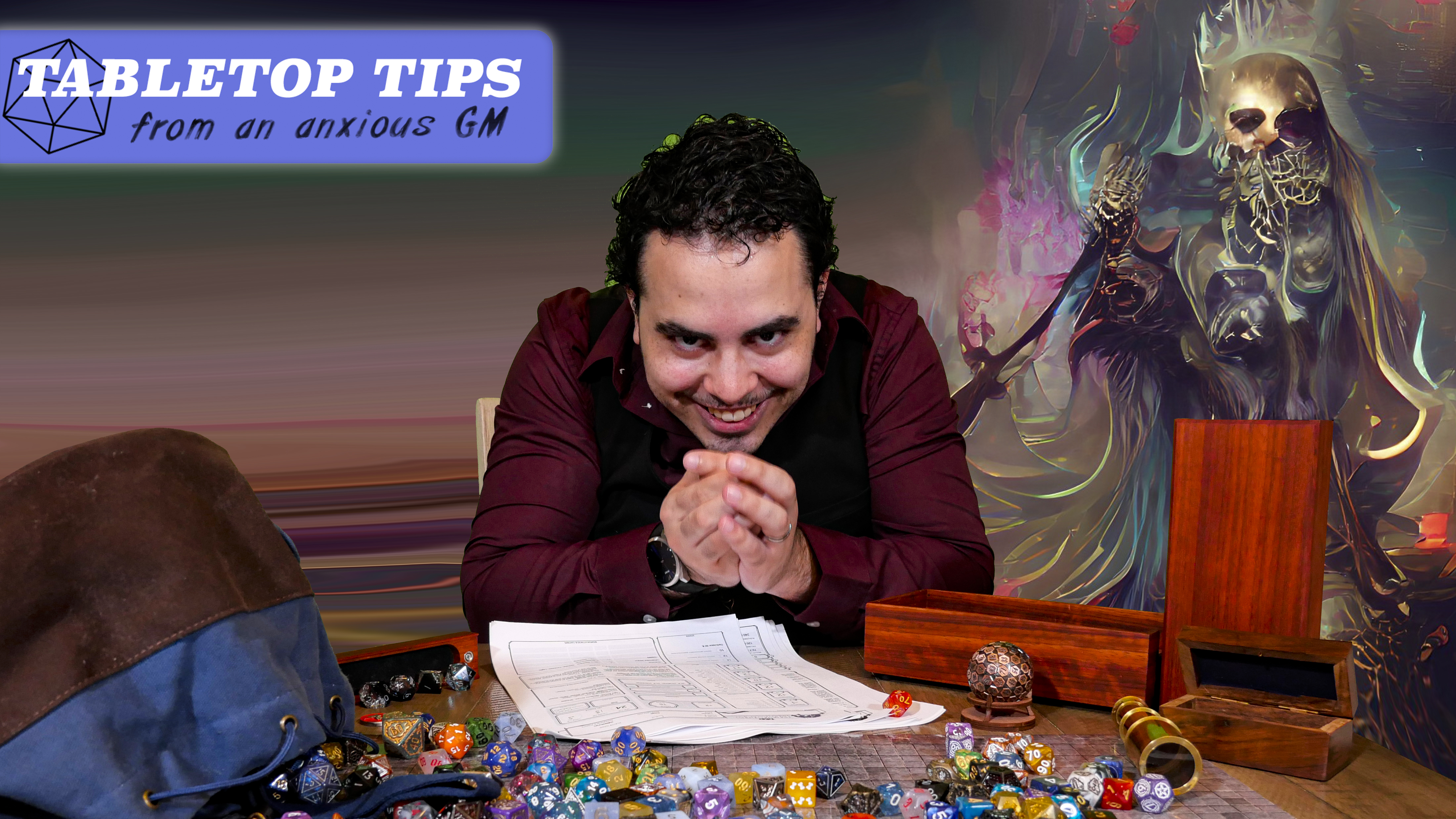How to become a lich or god in DND — Who’s thirsty for undeath?
If you really want to become a lich or a god, here’s how to make that happen

Sign up to receive The Snapshot, a free special dispatch from Laptop Mag, in your inbox.
You are now subscribed
Your newsletter sign-up was successful
One of the most searched questions about dnd is how to become a lich or god, which is hilarious, but it makes complete sense. I have two separate players whose characters are on those exact paths. I’m going to cover some mechanical possibilities for these two situations, but this really comes down to your GM. Don’t worry; I’ll go over everything. As someone who struggles with anxiety and depression — a combo that is less than ideal for a journalist or a game master juggling seven different players in a six-hour Dungeons & Dragons game — it can be tough to go up to your GM and say “hey, I wanna be a lich.”
In this week’s column of Tabletop tips from an anxious GM (all of which can be found on our DND tips hub), I’ll be answering the common question I see on the internet (and from my own players) about how to become a lich (or god).
I’m answering mostly from the player’s perspective because, let’s be honest, the GM can make up whatever they want to make this happen, but as a player, your tools are only as limited as your imagination. Let me explain.
TL;DR
Communicate! You’re not going to become a lich or a god without the help from your GM, so talk to them about it! How to become a lich. You and your GM can figure out the finer details, but it all comes down to sacrificing people and making a phylactery, which is a small vessel that houses the soul of a lich. How to become a god. Again, you and your GM can figure out the finer details, but you need to talk about what godhood means in your GM’s universe. Just be careful about overshadowing the party’s abilities. An all powerful god is boring, so make it interesting! The narrative comes first. If it doesn’t make sense for the narrative, it’s okay that your GM doesn’t think becoming a lich or a god is a good idea. Nothing is stopping your character from believing that they can do it, and nothing is more interesting than a failure!
How to become a lich or god in DND — an in-depth look

Communicate! You can’t just decide you want to become a lich or a god out of nowhere. Firstly, you need to talk to your GM and ask if that’s even possible within the narrative they’ve written. However, if it is, then you need to collaborate with them to see how you can make that happen. You can’t become a lich or a god behind the GM’s back. They need to put the breadcrumbs in front of you, and your character needs to grab them when the opportunity presents itself. If the GM doesn’t know what you want, they won’t know how to help you. So tell them!
How to become a lich. You and your GM can work out whatever creative way to make this happen. First, what is a lich? You don’t have to breathe, eat, or drink, and you don't age. In some iterations, your flesh falls apart and there’s nothing left of you but bones — although, I think that’s subject to the artist. Outside of not aging, lich’s truly cannot be killed, thanks to their phylactery (small vessel that houses the soul of a lich). Think of Voldemort’s horcruxes — it’s exactly the same (yes, Voldemort is a lich, don’t argue with me). If you die, you’ll basically respawn within a number of days beside your phylactery.
There are some loose rules in D&D 5e proper to make this happen. Of course, your GM can throw them right out of the window, but I’ll go over them anyway. First, you and your GM need to figure out how you acquire this knowledge — whether you made a deal with a devil or uncovered some ancient artifact. Next, you need to figure out how to make a phylactery (again, up to your GM’s discretion). Then you’ll need to brew a potion for the transformation. However, you’ll need access to the 9th level Abjuration spell Imprisonment, which is accessible to Wizards and Warlocks. You’ll only be able to get access to this spell at 17th level, which is a long way away. Namely, this spell lets you trap a humanoid inside your phylactery. Yes, you need to sacrifice someone to maintain your lichdom — and you need to continue to do so (otherwise your phylactery will dry out).
Sign up to receive The Snapshot, a free special dispatch from Laptop Mag, in your inbox.

How to become a god. Be very nice to your GM. In reality, you and your GM need to talk about this in depth. What is a god? What kind of power do they hold? And what does all of that mean in your GM’s world? There’s no set rules on godhood in D&D 5e, but I will offer my recommendations. Firstly, like lichdom, this should be a high-level endeavor. No earlier than 17th level. But before then, you and your GM should work on what that path and structure looks like. This will likely be your whole character’s journey, so they need to earn it.
You need to be careful not to overshadow your other players with this quest. And keep in mind that, more than likely, becoming this god will be at the very end of your journey. Otherwise, things could get out of hand within the party. If you actually want to play as a god in the campaign, then your GM would have to figure out how to balance your powers with the other party members. They can all become gods, and in turn, you can fight other gods, which would be dope as hell. Otherwise, there’s going to have to be some serious limits.
The narrative comes first. Keep in mind that becoming a god or a lich is less of a mechanical endeavor and more of a narrative one. Think about how it makes sense for your character, the story, and the world that you’re roleplaying in. If it doesn’t fit, then don’t force it. And if your GM isn’t a fan of it, that’s fine. Nothing says that your character’s goal should be achievable. Playing a character that has failed at their dream is incredibly fun and interesting. Regardless of how that conversation with your GM goes, work with it!

I hope this helps new players and GMs out there who are just jumping into TTRPGs. If you liked this column and want to see it continue, you can send me your own questions concerning mechanical, narrative, or social issues in the tabletop gaming space. You can email me at rami.tabari@futurenet.com or find me on Twitter.

Rami Tabari is the Reviews Editor for Laptop Mag. He reviews every shape and form of a laptop as well as all sorts of cool tech. You can find him sitting at his desk surrounded by a hoarder's dream of laptops, and when he navigates his way out to civilization, you can catch him watching really bad anime or playing some kind of painfully difficult game. He’s the best at every game and he just doesn’t lose. That’s why you’ll occasionally catch his byline attached to the latest Souls-like challenge.
